by Ken Sehested
Introduction
This collection of material is especially designed for use in planning a Labor Day observance—but also more: on work in general, both the productive and destructive varieties; on sabbath-keeping, which is so much more than blue 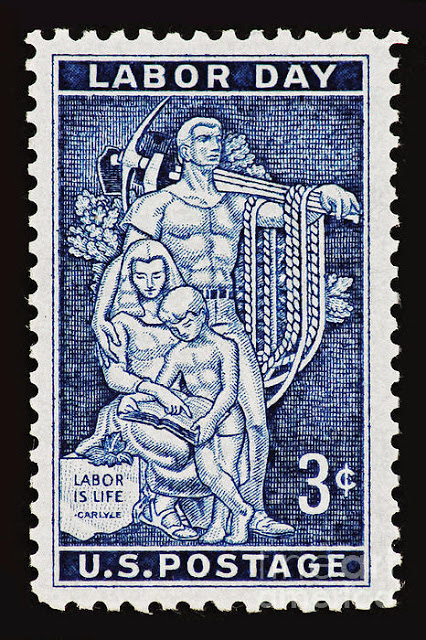 laws; on discerning vocations and callings; on the terrorizing disconnect between commerce and the flourishing of every living thing; on the increasingly barbarous treatment of immigrants and refugees.
laws; on discerning vocations and callings; on the terrorizing disconnect between commerce and the flourishing of every living thing; on the increasingly barbarous treatment of immigrants and refugees.
On this Labor Day, make a commitment that, in the coming year, you will strike up conversations (maybe even friendships) with people who work with their hands. The greatest failure of progressive movements—churched and unchurched alike—is our cultural alienation from working class folk. There can never be a sustained movement for fundamental change until this failure is admitted, renounced, and rectified.
[Additional material: “Resources for a Labor Day observance,” including a litany for worship, sermon, sabbath keeping meditations and more.]
¶ If all the cars in the United States were placed end to end, it would probably be Labor Day Weekend. —Doug Larson
¶ “Don't mistake activity with achievement.” ― John Wooden
¶ “No one has a right to sit down and feel hopeless. There is too much work to do.” —Dorothy Day
¶ “Do not be daunted by the enormity of the world's grief. Do justly, now. Love mercy, now. Walk humbly, now. You are not obligated to complete the work, but neither are you free to abandon it.” —Pirkei Avot, The Talmud
¶ For a brief history of Labor Day, see the “Labor Day 2019.”
¶ “This weekend we mark another Labor Day holiday, both here and in Canada (excepting Quebec). At least 80 other countries celebrate the first of May as a workers’ holiday. Jamaica has the most interesting Labour Day  tradition. For most of its colonial history the country observed “Empire Day” on 24 May in honor of British Queen Victoria’s birthday and her emancipation of slaves in 1938. But in 1961 Empire Day was supplanted by Labour Day, on 23 May, to commemorate the 1938 labor rebellion which led to independence.” —continue reading “Labor in the Shadow of Sabbath,” a sermon for Labor Day
tradition. For most of its colonial history the country observed “Empire Day” on 24 May in honor of British Queen Victoria’s birthday and her emancipation of slaves in 1938. But in 1961 Empire Day was supplanted by Labour Day, on 23 May, to commemorate the 1938 labor rebellion which led to independence.” —continue reading “Labor in the Shadow of Sabbath,” a sermon for Labor Day
Left: First Labor Day parade, 5 September 1882, New York City
¶ Agitation for the eight-hour day began after the Civil War. Congress passed an eight-hour law on June 25, 1868, but it was largely ignored. In the 1880s the issue was revived. The eight-hour workday was not effectively established until 1938 with the passage of the “Wage and Hour Law.”
¶ Forgotten Labor Day history. “The U.S. Department of Labor’s page on the history of Labor Day notes the holiday “is a creation of the labor movement and is dedicated to the social and economic achievements of American workers.” It doesn’t mention the Pullman Strike of 1894, which President Grover Cleveland suppressed with federal troops, leading to dozens of deaths. The federal enactment of a Labor Day observance was in direct response to the Pullman Strike.
¶ “In 2018, just 10.5% of American workers were members of unions. That’s is the lowest rate of membership since the bureau began collecting statistics in the early 1980s. Most analyses of pre-1980s union membership suggest it was close to 30% in the 1940s and 1950s.
“Recent economic research suggests the decline of unions is one of main reasons income inequality has risen over the past several decades. A 2018 study by economists at Princeton and Columbia found that since the 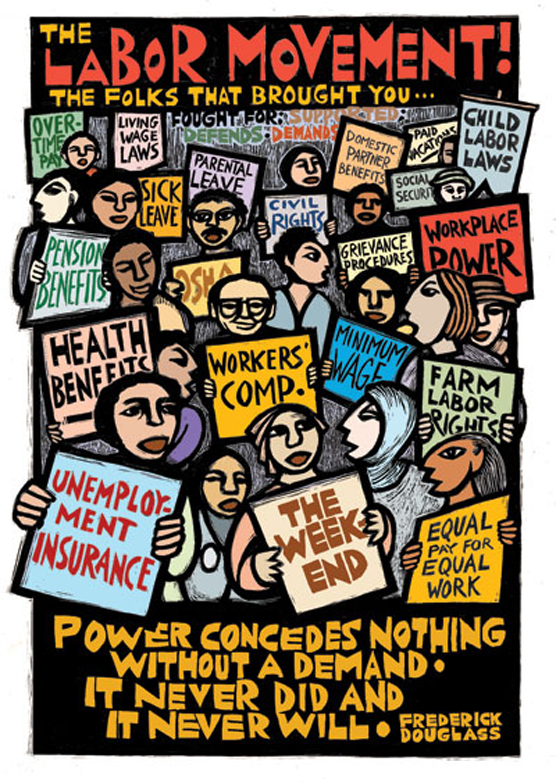 1930s, unionized workers have made about 15-20% more than similarly educated workers.” —Dan Kopf, Quartz
1930s, unionized workers have made about 15-20% more than similarly educated workers.” —Dan Kopf, Quartz
¶ “If work were a good thing, the rich would have grabbed it a long time ago." —Haitian proverb
¶ “There are buoyant powers of healing at work in the world that do not depend on us, that we need not finance or keep functioning and that are not at our disposal. —Walter Brueggemann
Right: Art by Ricardo Levins Morales, ©RLM Art Studio
¶ “There is a pervasive form of contemporary violence to which the idealist fighting for peace by non-violent methods most easily succumbs: activism and over-work. The rush and pressure of modern life are a form, perhaps the most common form, of its innate violence. To allow oneself to be carried away by a multitude of conflicting concerns, to surrender to too many demands, to commit oneself to too many projects, to want to help every one in everything is to succumb to violence.” —Thomas Merton
¶ “World's 26 richest people own as much as poorest 50%.” —Larry Elliott, Guardian
¶ The US is now an “oligarchy” in which “unlimited political bribery” has created “a complete subversion of our political system as a payoff to major contributors.” Both Democrats and Republicans, [former US President Jimmy] Carter said, “look upon this unlimited money as a great benefit to themselves.” —Jon Schwarz, The Intercept
¶ In Christian mysticism, the Latin phrase Ora et Labora reads in full: Ora et labora, Deus adest son has (“Pray and 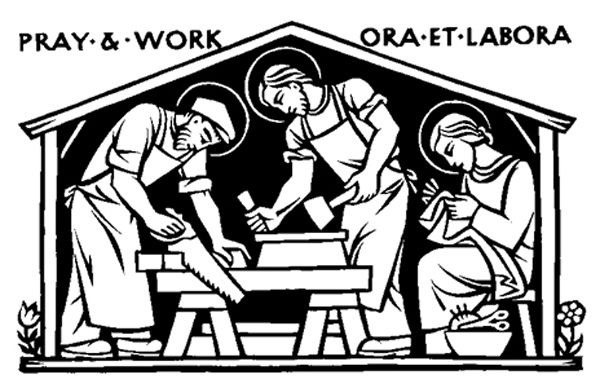 work, God is there,” i.e., God helps without delay.) The “pray and work” refers to the monastic practice of working and praying, generally associated with its use in the Rule of St. Benedict.
work, God is there,” i.e., God helps without delay.) The “pray and work” refers to the monastic practice of working and praying, generally associated with its use in the Rule of St. Benedict.
Left: Art by Ade Bethune, ©Ade Bethune Collection, St. Catherine University, St. Paul, MN.
¶ “I want to be with people who submerge / in the task, who go into the fields to harvest / and work in a row and pass the bags along, / who stand in the line and haul in their places, / who are not parlor generals and field deserters / but move in a common rhythm / when the food must come in or the fire be put out.” —Marge Piercy
¶ “Like craftsmen working on a great cathedral, we have each been given instructions about the particular stone we are to spend our lives carving, without knowing or being able to guess where it will take its place within the grand design.” —N.T. Wright
¶ “The secret of wealth is that workers are systematically underpaid.” ―Julie Rivkin, Literary Theory: An Anthology
¶ If you’ve enjoyed any of these—eight-hour day, 40-hour work week, a living wage, child labor laws, health and/or retirement benefits—thank the unions. —for more see “Eight Reasons to Thanks Unions”
¶ In 1968 the minimum wage was $1.60. If adjusted for inflation, the minimum wage would today be $11.76. —Louis Jacobson, Politifact
¶ “We mean to make things over, / We are tired of toil for naught / With but bare enough to live upon / And ne'er an hour for thought. / We want to feel the sunshine / And we want to smell the flow'rs / We are sure that God has  willed it / And we mean to have eight hours; / We're summoning our forces / From the shipyard, shop and mill / Eight hours for work, eight hours for rest / Eight hours for what we will.” —“Eight Hours,” lyrics by I. G. Blanchard, music by the Reverend Jesse H. Jones, 1878
willed it / And we mean to have eight hours; / We're summoning our forces / From the shipyard, shop and mill / Eight hours for work, eight hours for rest / Eight hours for what we will.” —“Eight Hours,” lyrics by I. G. Blanchard, music by the Reverend Jesse H. Jones, 1878
¶ In our endless quest to eliminate work, to find effortless fulfillment and the grail of One E-Z Step, we deny the ultimate value of the grind. —Owen Edwards
¶ Gonna be needing bigger barns.
• “You don't want to dally too much, because some Labor Day sales are there and gone in a flash. Nearly 23% of them lasted 24 hours or less in 2018. If you see a can't-miss deal, jump on it, because it could vanish tomorrow.” —Elizabeth Harper, “What to Expect From Labor Day Sales in 2019”
• “Follow these do’s and don’ts to maximize your money-saving potential this holiday weekend. Do: Buy luxury items. Big sale events, like Labor Day, are a good opportunity to splurge on expensive purchases without having to pay full price. Use the weekend’s percent-off promotions to snag that fancy tote or glitzy necklace you’ve had your heart set on.” —Courtney Jespersen, US News
¶ "Imagination is better than a sharp instrument. To pay attention, this is our endless and proper work." —Mary Oliver
¶ “This is the true joy of life, the being used up for a purpose recognized by yourself as a mighty one; being a force of nature instead of a feverish, selfish little clod of ailments and grievances, complaining that the world will not devote itself to making you happy. I want to be thoroughly used up when I die, for the harder I work, the more I live. Life is no “brief candle” to me. It is a sort of splendid torch which I have got hold of for a moment, and I want to make it burn as brightly as possible before handing it on to future generations.” —George Bernard Shaw
¶ “Labor is the superior of capital, and deserves much the higher consideration.” —Abraham Lincoln
 ¶ “The supreme accomplishment is to blur the lines between work and play.” —Arnold J. Toynbee
¶ “The supreme accomplishment is to blur the lines between work and play.” —Arnold J. Toynbee
¶ “I slept and dreamt that life was joy; / I awoke and saw that life was service; / I acted and, behold, service was joy.” —Rabindranath Tagore
¶ “Whatever you want to do, if you want to be great at it, you have to love it and be able to make sacrifices for it.” —Maya Angelou
¶ “Those who sow with tears will reap with songs of joy.” —Psalm 126:5
¶ “Go in all simplicity; do not be anxious to win a quiet mind, and it will be all the quieter. Do not examine so closely into the progress of your soul. Do not crave too much to be perfect, but let your spiritual life be formed by your duties, and by the actions which are called forth by circumstances.” —St. Francis de Sales
¶ "The concentration of privilege that exists today results far more from the institutional relationships that distribute power and wealth inequitably than from differences in talent or lack of desire for work. These institutional patterns must be examined and revised if we are to meet the demands of basic justice." —US Catholic Bishops' pastoral, "Economic Justice for All: Catholic Social Teaching and the U.S. Economy," 1986
¶ “A spirituality of work is based on a heightened sense of sacramentality, of the idea that everything that is, is holy and that our hands consecrate it to the service of God. When we grow radishes in a small container in a city apartment, we participate in creation. When we sweep the street in front of a house in the dirtiest city in the country, we bring new order to the universe. When we repair what has been broken or give away what we have earned that is above and beyond our own sustenance, we stoop down and scoop up the earth and breathe into it new life again, as God did one morning in time only to watch it unfold and unfold and unfold through the ages.” —Joan Chittister, OSB
¶ "Shortly after graduating from seminary and started looking for jobs, Nancy and I paid a visit to Will Campbell, who gave us sturdy advice: 'Don’t confuse your job with your vocation.' Mic drop. Full stop." —Ken Sehested
¶ "A hundred times every day I remind myself that my inner and outer life depend on the labors of other men, living and dead, and that I must exert myself in order to give in the same measure as I have received and am still 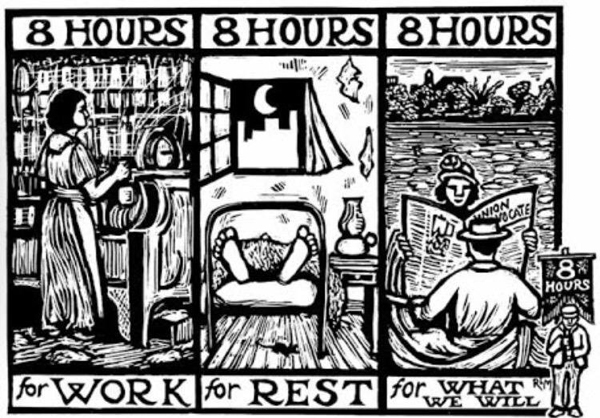 receiving." —Albert Einstein
receiving." —Albert Einstein
¶ “He who works with his hands is a laborer. He who works with his hands and his head is a craftsman. He who works with his hands and his head and his heart is an artist.” ―Francis of Assisi
¶ "A vision without a task is but a dream, a task without a vision is drudgery, a vision with a task is the hope of the world." —Church inscription, Sussex, England (1730)
¶ “She'd been in labor for nineteen hours; I completely understood why she wanted to pass the buck. ‘You are so beautiful,’ her husband crooned, holding up her shoulders.
“‘You are so full of shit,’ Lila snarled, but as a contraction settled over her like a net, she bore down and pushed.” ―Jodi Picoult, “Handle with Care”
¶ “Our merchants and masters complain much of the bad effects of high wages in raising the price and lessening the sale of goods. They say nothing concerning the bad effects of high profits. They are silent with regard to the pernicious effects of their own gains. They complain only of those of other people.” ― Adam Smith, Scottish economist and philosopher whose book, "The Wealth of Nations," is considered the “bible of capitalism”
¶ “The few own the many because they possess the means of livelihood of all. . . . The country is governed for the richest, for the corporations, the bankers, the land speculators, and for the exploiters of labor. “ —Helen Keller
¶ “First comes the sweat; then comes the beauty.” —George Balanchine
¶ “It need not be said that a culture which leaves unsatisfied and drives to rebelliousness so large a number of its members neither has a prospect of continued existence, nor deserves it.” ―Sigmund Freud, "The Future of an 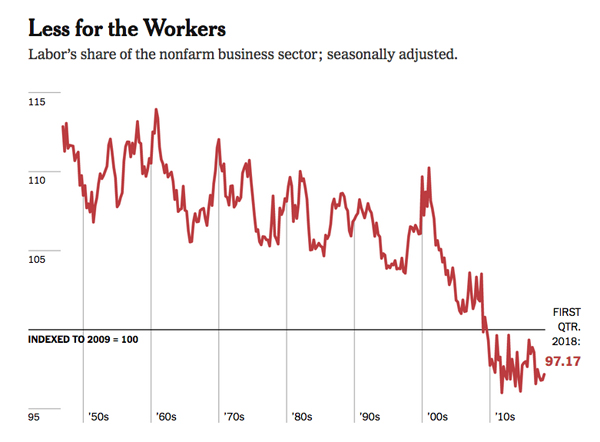 Illusion"
Illusion"
¶ “Woe to him who builds his house by unrighteousness, and his upper rooms by injustice; who makes his neighbors work for nothing, and does not give them their wages.” —Jeremiah 22:13
¶ “The economics of industrialized countries would collapse if women didn't do the work they do for free: According to economist Marilyn Waring, throughout the West it generates between 25%–40% of the gross national product.” ―Naomi Wolf, The Beauty Myth
¶ “What Would Happen if Trump Actually Deported Millions of Immigrants?: There could be food shortages within days.” —León Krauze, Slate
¶ “I know it’s good work when I finish, look at the clock, and say ‘Where did the time go?’” —Anonymous
¶ “Capitalism does not permit an even flow of economic resources. With this system, a small privileged few are rich beyond conscience, and almost all others are doomed to be poor at some level. That’s the way the system works. And since we know that the system will not change the rules, we are going to have to change the system.” —Martin Luther King Jr.
¶ "Am I no longer young, and still not half-perfect? Let me keep my mind on what matters, which is my work, which is mostly standing still and learning to be astonished." —Mary Oliver
¶ “Can anything be imagined more abhorrent to every sentiment of generosity and justice, than the law which arms the rich with the legal right to fix, by assize [judicial ruling], the wages of the poor? If this is not slavery, we have forgotten its definition. Strike the right of associating for the sale of labor from the privileges of a freeman, 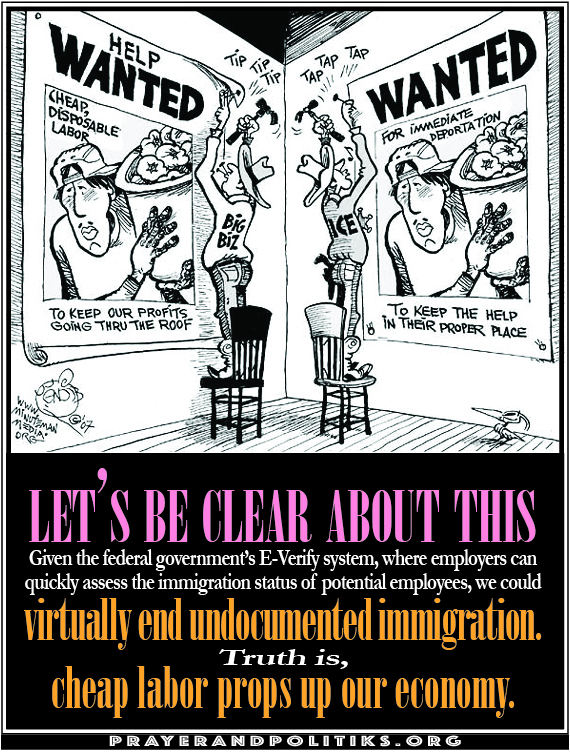 and you may as well bind him to a master, or ascribe him to the soil.” ―William Cullen Bryant
and you may as well bind him to a master, or ascribe him to the soil.” ―William Cullen Bryant
¶ “The test of sincerity of one’s prayer is the willingness to labor on its behalf.” —St. John Chrysostom
¶ “Listen! The wages of the laborers who mowed your fields, which you kept back by fraud, cry out, and the cries of the harvesters have reached the ears of the Lord of hosts.” —James 5:4
¶ “We may ignore, but we can nowhere evade, the presence of God. The world is crowded with God. God walks everywhere incognito. And the incognito is not always hard to penetrate. The real labor is to remember, to attend. In fact, to come awake. Still more, to remain awake.” —C.S. Lewis
¶ “Can one be passionate about the just, the / ideal, the sublime, and the holy, and yet commit / to no labor in its cause? I don't think so. . . . / Be ignited, or be gone.” —Mary Oliver
¶ "Let the thief no longer steal, but rather let him labor, doing honest work with his hands. . . .” The Apostle’s admonition to work was not from private virtue but for the common good, for he added, “so that he may be able to give to those in need." —Ephesians 4:28
¶ “The general spread of the light of science has already laid open to every view the palpable truth that the mass of mankind has not been born with saddles on their backs, nor a favored few booted and spurred, ready to ride them legitimately, by the grace of God.” —Thomas Jefferson
¶ “There is a vitality, a life force, an energy, a quickening that is translated through you into action, and because there is only one of you in all of time, this expression is unique. And if you block it, it will never exist through any other medium, and be lost. The world will not have it.
“It is not your business to determine how good it is, nor how valuable, nor how it compares with other  expressions. It is your business to keep it yours, clearly and directly, to keep the channel open. You do not even have to believe in yourself or your work. You have to keep open and aware directly to the urge that motivates you.” —Martha Graham, legendary modern dancer and choreographer
expressions. It is your business to keep it yours, clearly and directly, to keep the channel open. You do not even have to believe in yourself or your work. You have to keep open and aware directly to the urge that motivates you.” —Martha Graham, legendary modern dancer and choreographer
¶ “If God had so willed, He would have created you one community, but [He has not done so] that He may test you in what He has given you; so compete with one another in good works. To God you shall all return and He will tell you the truth about that which you have been disputing.” —Qur’an 5:48
¶ “Worrying is less work than doing something to fix the worry. Everybody wants to save the earth; nobody wants to help Mom with the dishes.” —P.J. O'Rourke
¶ “The liberty of a democracy is not safe if the people tolerate the growth of private power to the point where it becomes stronger than the democratic state itself. That, in its essence, is fascism—ownership of government by an individual, by a group, or by any controlling private power.” —President Franklin D. Roosevelt
¶ “We need more images of a patient God who loves the world so much that She gives her people time and resources like history and culture, human friends and animal companions, work and play, mountains and water, food and music, memory and reason, imagination and talents, and prayer and worship, and as many chances as we in our fear may need to come to our senses." —Carter Heyward
¶ The combined wealth of the three wealthiest individuals in the US—Bill Gates of Microsoft, Jeff Bezos of 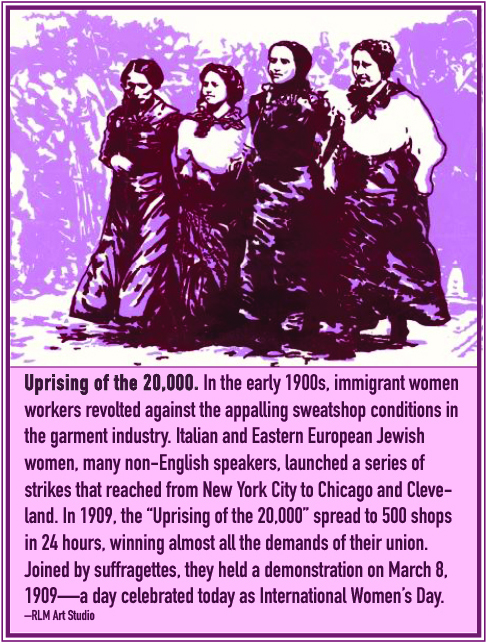 Amazon, and Warren Buffett of Berkshire Hathaway—is greater than the bottom 50% of US citizens. —presidential candidate Bernie Sanders, confirmed by Snopes
Amazon, and Warren Buffett of Berkshire Hathaway—is greater than the bottom 50% of US citizens. —presidential candidate Bernie Sanders, confirmed by Snopes
¶ “No work is insignificant. All labor that uplifts humanity has dignity and importance and should be undertaken with painstaking excellence.” —Martin Luther King, Jr
¶ “I've always resented the smug statements of politicians, media commentators, corporate executives, who talked of how, in America, if you worked hard, you would become rich. The meaning of that was, if you were poor, it was because you hadn't worked hard enough. I knew this was a lie—about my father, and millions of others: men and women who worked harder than anyone.” ―Howard Zinn
¶ “Hobgoblin nor foul fiend / can daught his spirit; / He knows in the end / Shall life inherit. / Then, fancies, fly away, / He’ll not fear what others say; / He’ll labor night and day / to be a pilgrim.” —John Bunyan, “Pilgrim”
¶ “We will have many visions of what a just and equitable democracy will look like, and we will have even more ideas on how to get there. But we must begin to work together, to compromise, and to listen to each other in order to realize our visions. Working together will be the hardest challenge we will face. Much harder than facing the opposition or working alone. But it is the only way we will win. It is the only way to create revolutionary change.” —Linda Stout, “Bridging the Class Divide and other Lessons for Grassroots Organizing”
¶ “A Brother asked one of the elders: What good thing shall I do and have life thereby? The old man replied: God alone knows what is good. However, I have heard it is said that someone inquired of Father Abbot Nisteros the great, the friend of Abbot Anthony, asking: What good work shall I do? and that he replied: Not all works are alike. For Scripture says that Abraham was hospitable and God was with him. Elias loved solitary prayer, and God was with him. And David was humble, and God was with him. Therefore, whatever you see your soul to desire according to God. Do that thing, and you shall keep your heart safe.” —quoted in Thomas Merton, “The Wisdom of the Desert”
¶ “At the center of our pain, we glimpse a fairer world and hear a call. When we are able to keep company with our own fears and sorrows, we are shown the way to go, our parched lives are watered, and the earth becomes a 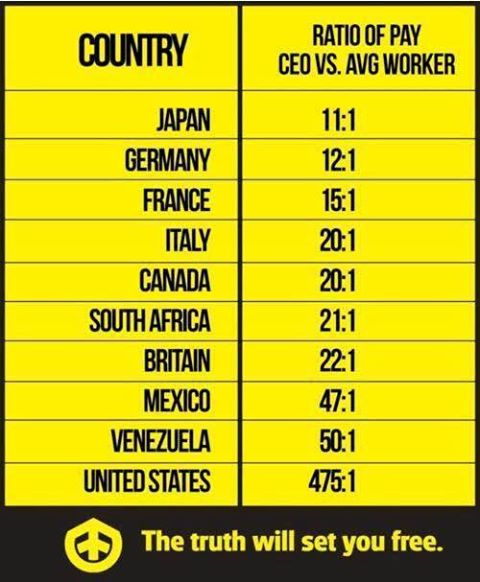 greener place. Hope begins to grow, and we are summoned to the work that will give us a feeling of wellness and make possible that which we envision.” —Elizabeth O'Connor, “Cry Pain, Cry Hope”
greener place. Hope begins to grow, and we are summoned to the work that will give us a feeling of wellness and make possible that which we envision.” —Elizabeth O'Connor, “Cry Pain, Cry Hope”
¶ “We must love God, but let it be in the work of our bodies, in the sweat of our brows. For very often many acts of love for God, of kindness, of good will, and other similar inclinations and interior practices of a tender heart, although good and very desirable, are yet very suspect when they do not lead to the practice of effective love.” —St. Vincent de Paul
¶ “It's pulling a piano across a plowed field.” —Jesuit Fr. Daniel Berrigan, assessing his controversial, against-the-grain life and work
¶ “The beauty, the splendor of God, is visible in all those who prepare God's way. The Messianic work of liberation awaits us. God entrusts us with preparing the way of the Messiah. God does not say to anyone, ‘You are just a simple housewife or a mere employee and understand nothing of complicated necessities.’ Prepare the way of God, comfort the people in their weakness, make them into street workers on God's way.” —Dorothee Sölle, “Theology for Skeptics”
¶ An old farmer once commented to his pastor, “I miss my mules.” Puzzled, the pastor asked, “Why do you want to go back to farming with mules?” He explained that his mules could work hard plowing the fields for about six days, but they needed the seventh day to rest. When the mules got their rest, they worked hard all week. When they did not get their rest, they did not work well the next week. “My mules reminded me that I need to rest, too. My machines cannot do that for me.” —Jim Strickland, in a publicity brochure for Sabbath House, a retreat center in Western North Carolina
¶ “Have courage for the great sorrows of life and patience for the small ones. And when you have laboriously accomplished your daily task, go to sleep in peace. God is awake.” —Victor Hugo
¶ “We can be so overwhelmed by the extent of the world's problems that the obvious need before us can be 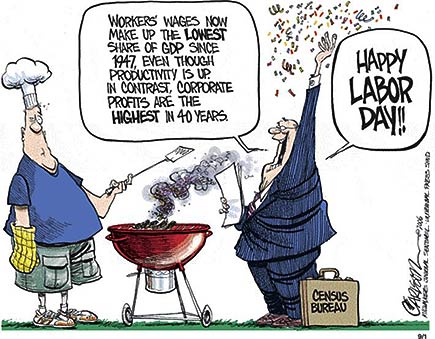 missed. For the most of us, it is in the minute particular that we give ourselves to the eternal order of things; in our own living rooms, in our own streets, in our own cities, in the way we live and love and care, minute by minute; in the chance encounters of every day, as well as in the planned work which we do.” —Dorothy Steere
missed. For the most of us, it is in the minute particular that we give ourselves to the eternal order of things; in our own living rooms, in our own streets, in our own cities, in the way we live and love and care, minute by minute; in the chance encounters of every day, as well as in the planned work which we do.” —Dorothy Steere
¶ "Their land is filled with silver and gold: / and there is no end to their treasures. / Their land is filled with horses: / And there is no end to their chariots. / Their land is filled with idols, / they bow down to the work of their hands: / to what their own fingers have made. / So people are humbled, / and everyone is brought low." —Isaiah 2:7-9
¶ “To hope is a duty, not a luxury. To hope is not a dream, but to turn dream into reality. Happy are those who dream dreams, and are ready to pay the price to make them come true. —Cardinal Leo Suenens
¶ “Sabbath is not simply the pause that refreshes. It is the pause that transforms. . . . It is an occasion for reimagining all of social life away from coercion and competition to compassionate solidarity. . . . Those who participate in [sabbath keeping] break the anxiety cycle. They are invited to awareness that life does not consist in frantic production and consumption that reduces everyone else to threat and competition.” —Walter Brueggemann, "Sabbath as Resistance"
# # #



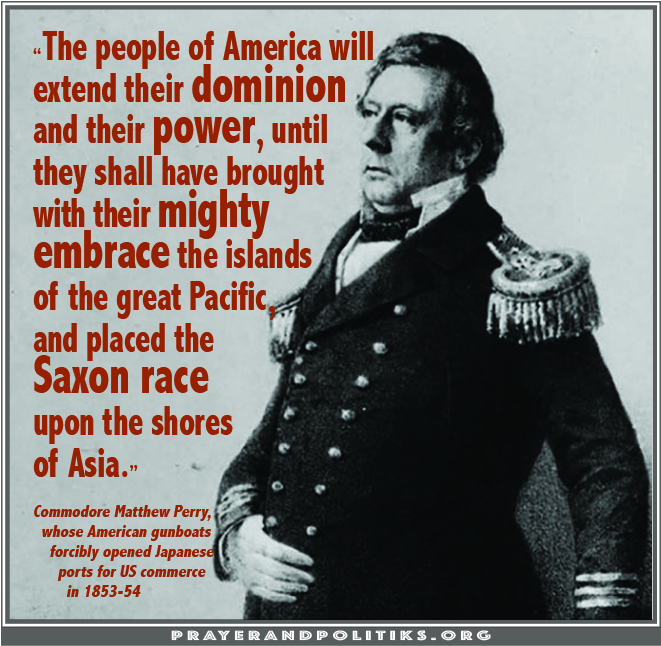 successes of the Civil Rights Movement: festering white supremacy and white nationalism.
successes of the Civil Rights Movement: festering white supremacy and white nationalism.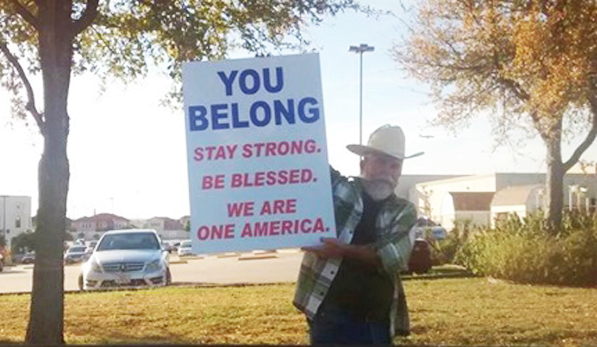 posted at
posted at 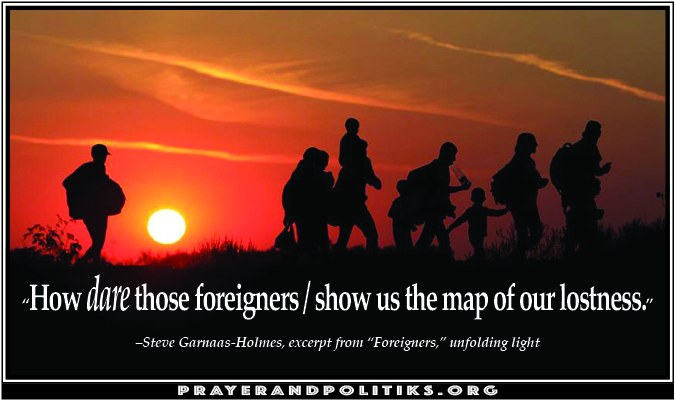 James Bradley, “The Imperial Cruise: A Secret History of Empire and War”
James Bradley, “The Imperial Cruise: A Secret History of Empire and War”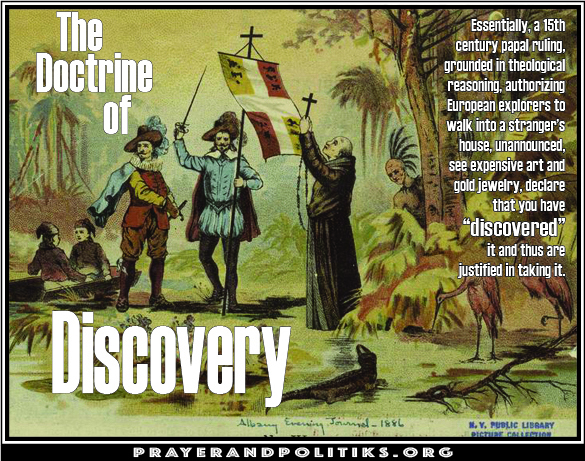 the late 15th century together framed a church “doctrine of discovery” to Spain’s and Portugal’s respective conquests, conveying the Pope’s blessing “to capture, vanquish, and subdue the Saracens, pagans, and other enemies of Christ and put them into perpetual slavery and to take all their possession and their property.” —Vinnie Rotondaro, “
the late 15th century together framed a church “doctrine of discovery” to Spain’s and Portugal’s respective conquests, conveying the Pope’s blessing “to capture, vanquish, and subdue the Saracens, pagans, and other enemies of Christ and put them into perpetual slavery and to take all their possession and their property.” —Vinnie Rotondaro, “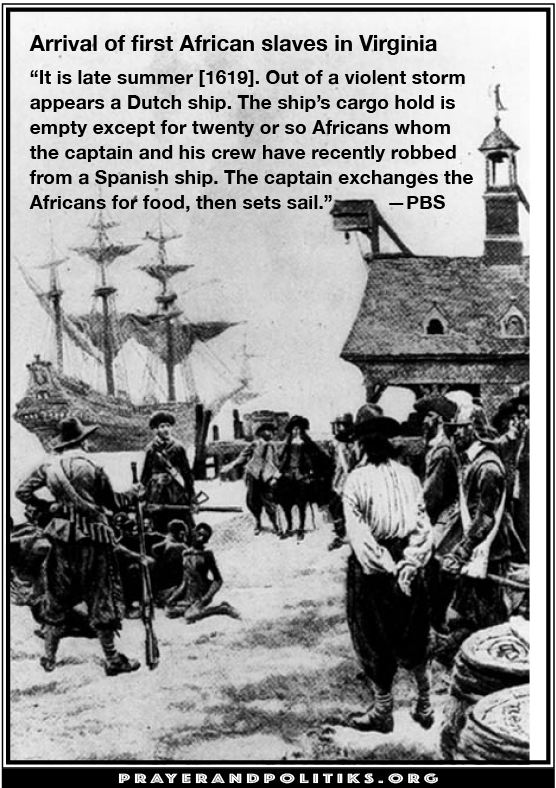 Virginia, and dropped anchor into the muddy waters of history. It was clear to the men who received this ‘Dutch man of War’ that she was no ordinary vessel. What seems unusual today is that no one sensed how extraordinary she really was. For few ships, before or since, have unloaded a more momentous cargo. The history of Black America began.” —scholar and social historian Lerone Bennett, in his 1962 book, “Before Mayflower,” quoted in Nibs Stroupe, “
Virginia, and dropped anchor into the muddy waters of history. It was clear to the men who received this ‘Dutch man of War’ that she was no ordinary vessel. What seems unusual today is that no one sensed how extraordinary she really was. For few ships, before or since, have unloaded a more momentous cargo. The history of Black America began.” —scholar and social historian Lerone Bennett, in his 1962 book, “Before Mayflower,” quoted in Nibs Stroupe, “ Arkansas, chanting “six million more,” a reference to the number of Jews who died during the Holocaust. —photo by Jasmin Joy Elma Lyon,
Arkansas, chanting “six million more,” a reference to the number of Jews who died during the Holocaust. —photo by Jasmin Joy Elma Lyon, 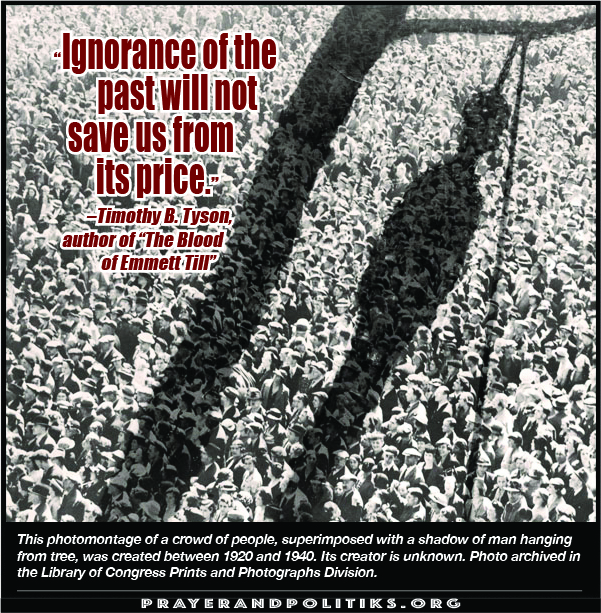 Sonoran Desert in Arizona, the Mexican State of Sonora, and the Whipple Mountains and Imperial County areas of California. These plants can live up to 150 years.
Sonoran Desert in Arizona, the Mexican State of Sonora, and the Whipple Mountains and Imperial County areas of California. These plants can live up to 150 years. • “
• “ supporting justice, peace, and human rights advocacy. The request was for the production of material for use in local congregations on matters related to racial justice.
supporting justice, peace, and human rights advocacy. The request was for the production of material for use in local congregations on matters related to racial justice. the latter to a gun dealer to help fund a mission project in Cuba.
the latter to a gun dealer to help fund a mission project in Cuba.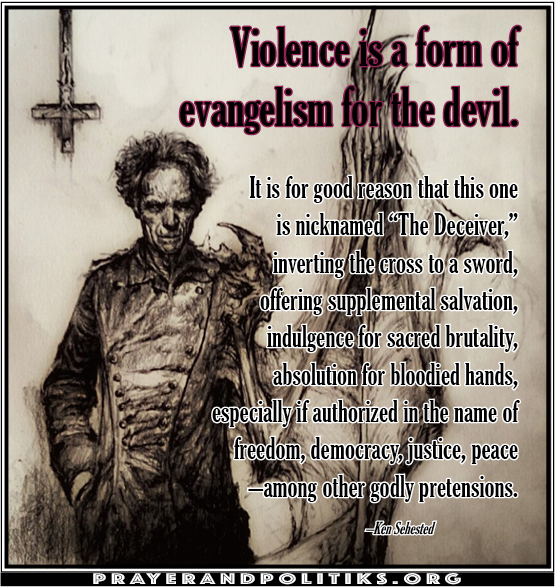 jealous of the military’s ability to inspire young men and women to be trained for the day when going into harm’s way, for the sake of something larger than personal safety and private profit, is called for.
jealous of the military’s ability to inspire young men and women to be trained for the day when going into harm’s way, for the sake of something larger than personal safety and private profit, is called for. One recent slow morning, in late August, the grocery stores’ circulars in the newspaper caught my attention. I began to wonder how things might be different if certain fortunes were reversed. Instead of “back-to-school” it’s “back-to-basic-training” discount offers.
One recent slow morning, in late August, the grocery stores’ circulars in the newspaper caught my attention. I began to wonder how things might be different if certain fortunes were reversed. Instead of “back-to-school” it’s “back-to-basic-training” discount offers.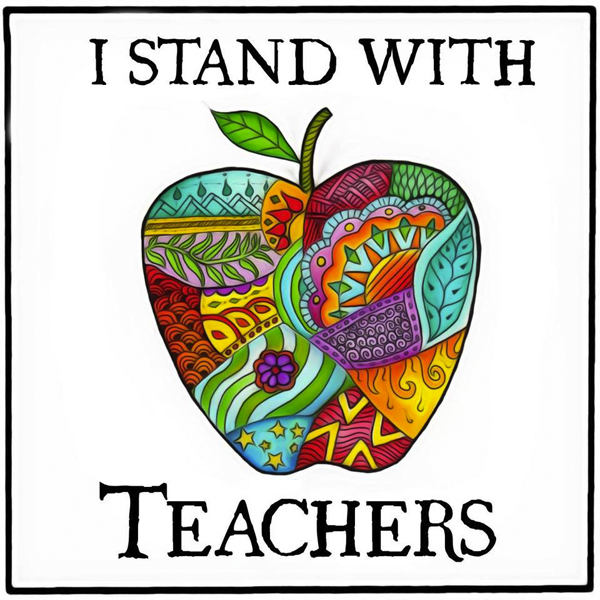 ‘supplemental’ educational appropriation. The Speaker of the House claims Department of Education budget already ‘bloated’ with unnecessary pork.”
‘supplemental’ educational appropriation. The Speaker of the House claims Department of Education budget already ‘bloated’ with unnecessary pork.”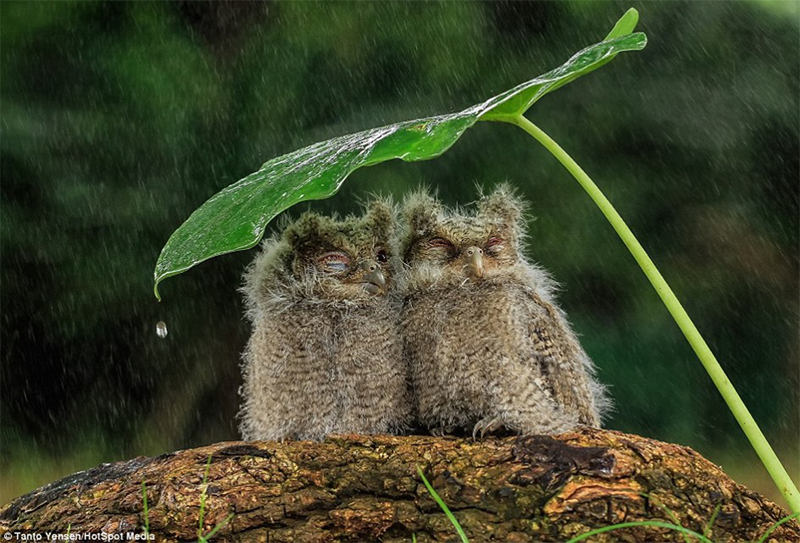
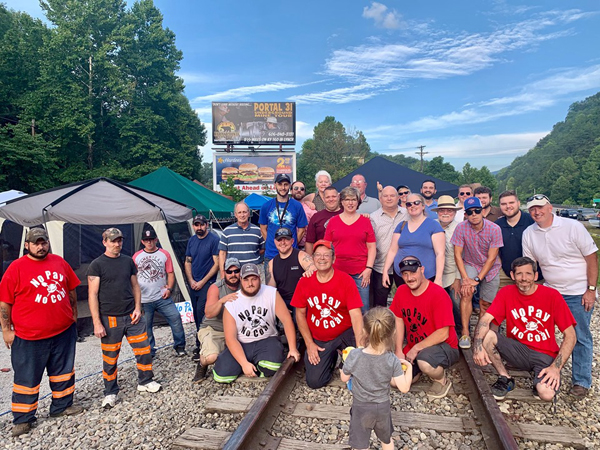 hallelujah.” —Andy Grammer, and the choir of PS 22 Chorus, “
hallelujah.” —Andy Grammer, and the choir of PS 22 Chorus, “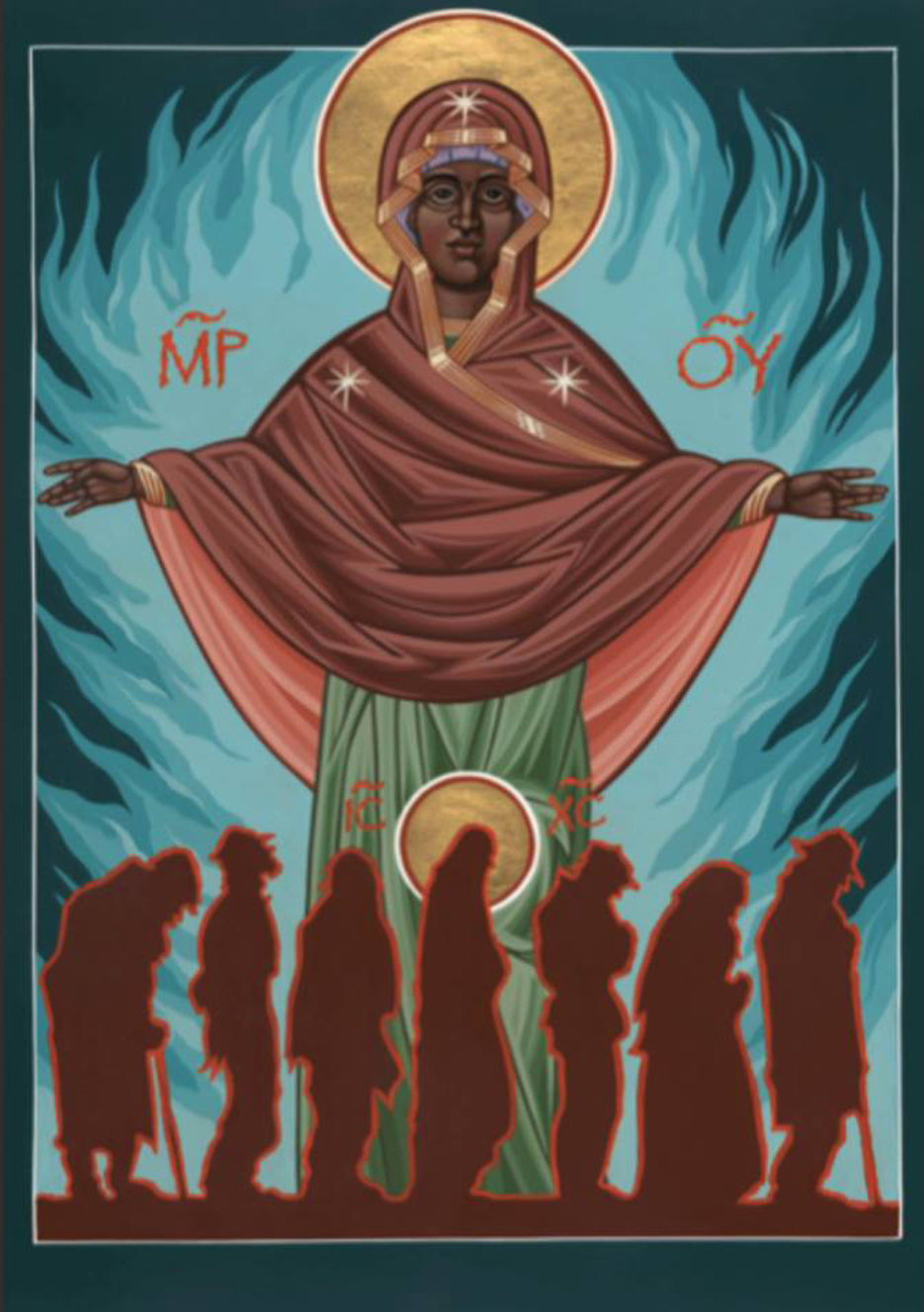 There have been 9 additional mass shootings from 1-5 August.
There have been 9 additional mass shootings from 1-5 August. election messaging.” —
election messaging.” — helpless here. And until all of us stand up and insist on holding public officials accountable for change our gun laws, these tragedies will keep happening.” —
helpless here. And until all of us stand up and insist on holding public officials accountable for change our gun laws, these tragedies will keep happening.” — Fear of a godless universe.” —Jessica Stern in "Terror in the Name of God: Why Religious Militants Kill"
Fear of a godless universe.” —Jessica Stern in "Terror in the Name of God: Why Religious Militants Kill"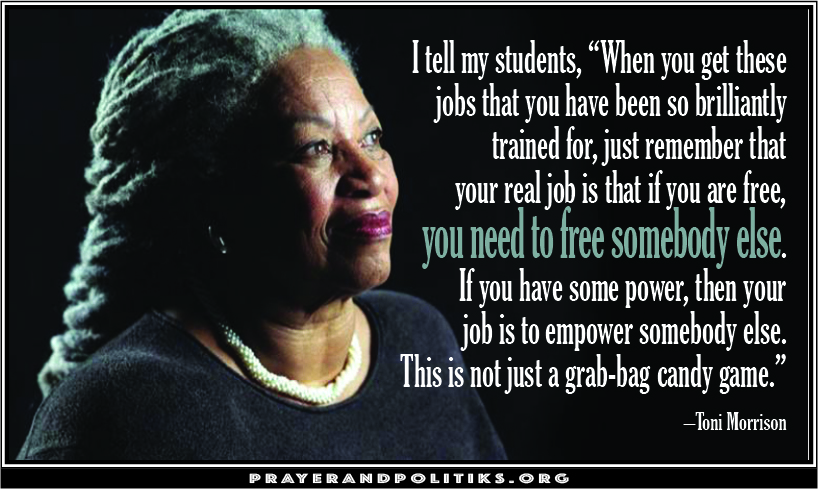
 an to pick them up. A child vainly searched a workplace parking lot for missing parents.” —
an to pick them up. A child vainly searched a workplace parking lot for missing parents.” — me the gun, and the bullets. Make and model. Manufacturer, address, CEO, board of directors, stock symbol, annual profits, lobbyists.” —Chris Sanders on Facebook
me the gun, and the bullets. Make and model. Manufacturer, address, CEO, board of directors, stock symbol, annual profits, lobbyists.” —Chris Sanders on Facebook
 Feel free to copy and post any original art on this site. (The ones with “prayerandpolitiks.org” at the bottom.) As well as other information you find helpful.
Feel free to copy and post any original art on this site. (The ones with “prayerandpolitiks.org” at the bottom.) As well as other information you find helpful.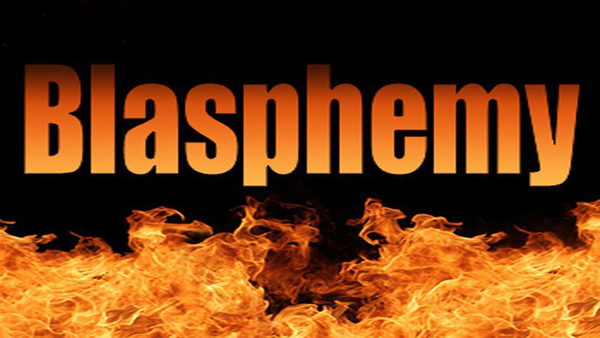 Jesus, sustained and nurtured and interceded by the Holy Spirit. Doxology happens “when righteousness and peace embrace” (Psalm 85:10-13), when the commendation of Heaven is reflected in the restoration of Creation, human and humus alike.
Jesus, sustained and nurtured and interceded by the Holy Spirit. Doxology happens “when righteousness and peace embrace” (Psalm 85:10-13), when the commendation of Heaven is reflected in the restoration of Creation, human and humus alike. by Ken Sehested
by Ken Sehested

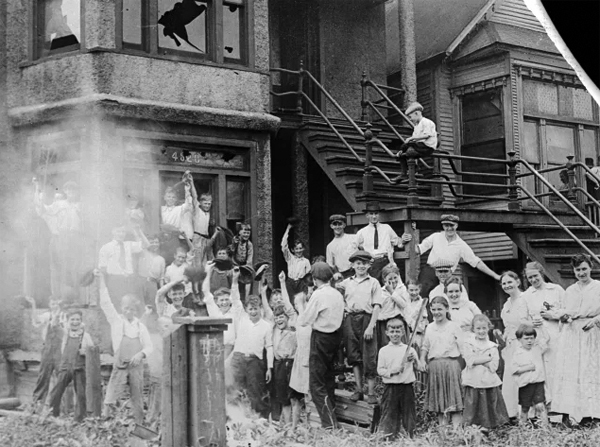 “It flowed in small towns like Elaine, Arkansas, in medium-size places such as Annapolis, Maryland, and Syracuse, New York, and in big cities like Washington and Chicago. Hundreds of African American men, women and children were burned alive, shot, hanged or beaten to death by white mobs. Thousands saw their homes and businesses burned to the ground and were driven out, many never to return.
“It flowed in small towns like Elaine, Arkansas, in medium-size places such as Annapolis, Maryland, and Syracuse, New York, and in big cities like Washington and Chicago. Hundreds of African American men, women and children were burned alive, shot, hanged or beaten to death by white mobs. Thousands saw their homes and businesses burned to the ground and were driven out, many never to return. protect an undocumented man as Immigration and Customs Enforcement (ICE) officers attempted to arrest him. After a four-hour attempted arrest — during which time the undocumented man and his young son barricaded themselves inside a van parked in front of their home — ICE agents left, and neighbors and activists on the scene created a human chain to allow the family to get indoors.” —
protect an undocumented man as Immigration and Customs Enforcement (ICE) officers attempted to arrest him. After a four-hour attempted arrest — during which time the undocumented man and his young son barricaded themselves inside a van parked in front of their home — ICE agents left, and neighbors and activists on the scene created a human chain to allow the family to get indoors.” —
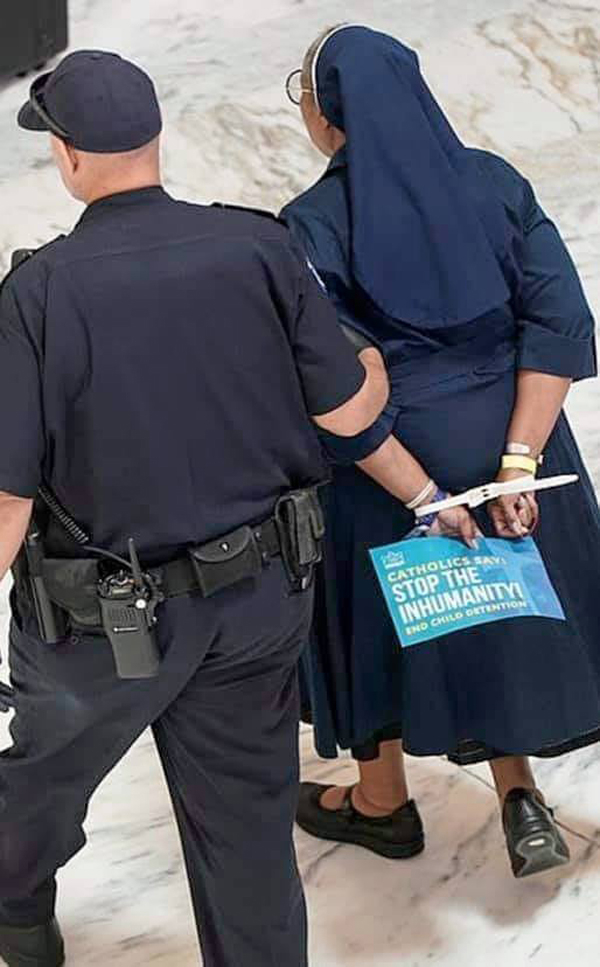 My prayer was — and is — to end the warehousing of immigrant children in cages — 63,624 of whom have been apprehended by border patrol at the southwestern border between October 2018 and June 2019 and seven of whom have died after being in federal custody since September. More than a dozen Catholic orders and organizations sponsored the event. —
My prayer was — and is — to end the warehousing of immigrant children in cages — 63,624 of whom have been apprehended by border patrol at the southwestern border between October 2018 and June 2019 and seven of whom have died after being in federal custody since September. More than a dozen Catholic orders and organizations sponsored the event. —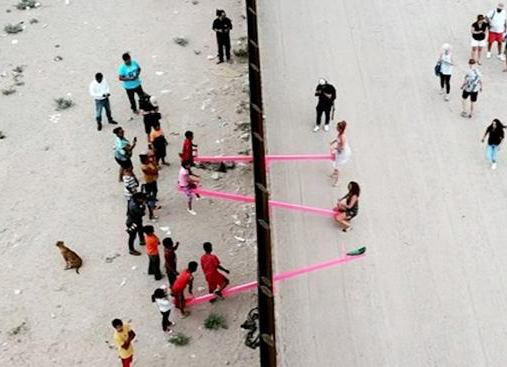 toothbrushes in order to be in held in ‘safe and sanitary’ conditions.” —
toothbrushes in order to be in held in ‘safe and sanitary’ conditions.” —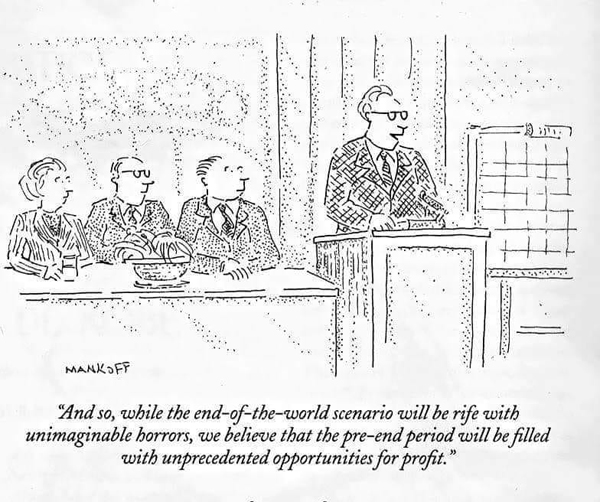 Featured this week on prayer&politiks
Featured this week on prayer&politiks